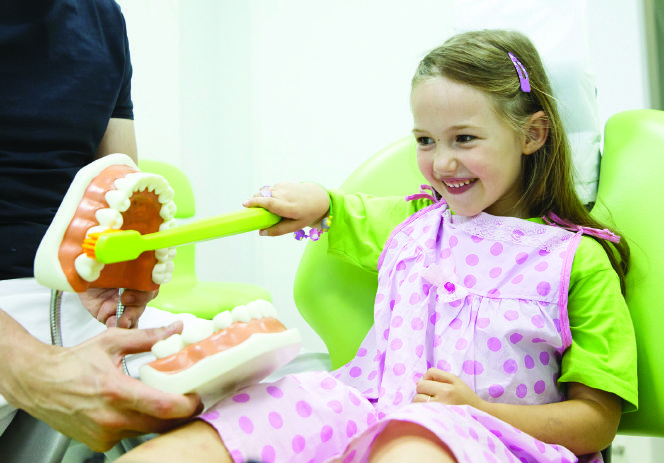First, Robert Shearer shared that fluoridated water has a long history of safety and effectiveness in the United States.
"It enjoys broad support from dentists, physicians and the scientific community," he said. "Everyone from the World Health Organization to the American Medical Association support water fluoridation, and while some local areas are moving towards removing fluoride in the city water, so many of our patients have asked, 'How does this put children at risk and how can we prevent seeing more cavities?'"
The answer involves a healthy diet, limiting sugary drinks, getting good oral health care, and regular dental checkups and cleanings.
"For parents concerned about making sure their child is receiving the right amount of fluoride, we recommend you talk with your dentist about ways to ensure your child has a healthy smile," he added. "For areas without fluoridation, the American Dental Association has come up with a list of guidelines based on several risk factors."
The ADA recommends prescription fluoride varnish for all children younger than 6 years old. From ages 6-18, a topical fluoride applied by a dentist or a prescription mouthwash or toothpaste may be appropriate based on the child's risk factors.
Mandy Shearer also pointed out that it's important to always supervise kids younger than age 6 while they brush, as they are more likely to swallow toothpaste and need extra guidance on getting the right technique down to get proper cleanings. The ADA also recommends that all children see dentists by their first birthdays.
"At this first visit, the dentist will explain proper brushing and flossing techniques and do a modified exam while your baby sits on your lap," Mandy Shearer said. "It's our job as dentists to educate our patients and take steps to try and keep our community's mouths happy and healthy."
Parents also need to be aware of what causes cavities to begin with in order to help keep them away. Mandy Shearer said brushing and flossing at least twice a day are the best ways to be sure the acid buildup that comes from food and bacteria sitting too long on the teeth stays away, ultimately preventing holes (cavities) from forming.
"Sugary foods like juices and candy can also cause erosion of the tooth enamel and create a cavity, so limiting that intake helps a great deal too," she added.
As your child's permanent teeth grow in, your dentist can help prevent decay by applying a thin wash of resin to the back teeth, where most chewing is done. This protective coating keeps bacteria from settling in the hard-to-reach crevices of the molars.
"Parents still need to make sure that kids know that sealants aren't a replacement for good brushing and regular flossing and getting enough fluoride," Robert Shearer noted.
If children complain of tooth pain or sensitivity, it's important to call your dentist right away to be seen and determine if it's the beginning of a cavity and how to treat it so that more damage doesn't happen in the long run.
Noteworthy:
"For parents concerned about making sure their child is receiving the right amount of fluoride, we recommend you talk with your dentist about ways to ensure your child has a healthy smile. For areas without fluoridation, the American Dental Association has come up with a list of guidelines, based on several risk factors." - Dr. Robert Shearer of Soddy Daisy Smiles
MORE INFORMATION
For more information about Soddy Daisy Smiles and its services, call the office at 423-332-5275 or visit soddydaisysmiles.com.


